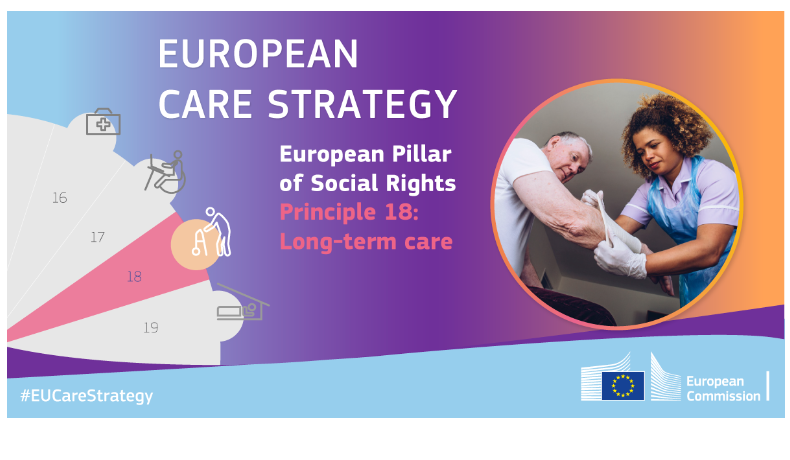European Commission adopts European Care Strategy, highlights need for new skills for caregivers

date: 08/10/2022
Skills requirements in the care sector are increasingly complex, with a strong need for soft skills, digital skills, and specific competences (for instance, knowledge of geriatric care or care for people with Alzheimer’s).
The European Care Strategy highlights how upskilling and reskilling opportunities will improve the attractiveness and quality of care work. EU-level supporting actions include ERASMUS+ support for early childhood education and care (ECEC) staff to continuously develop their professional competences, a skills partnership under the Pact for Skills for the long-term care sector, action on digital skills in the health and care sectors under the Digital Europe Programme, as well as gathering skills intelligence on current and future skills needs and trends in the long-term care sector.
The proposal for a Council recommendation on access to high-quality affordable long-term care invites Member States to address skills needs and worker shortages in long-term care, in collaboration with social partners. These include designing and improving initial and continuous education and training, as well as building career pathways in the long-term care sector through upskilling, reskilling, skills validation, and information and guidance services.
